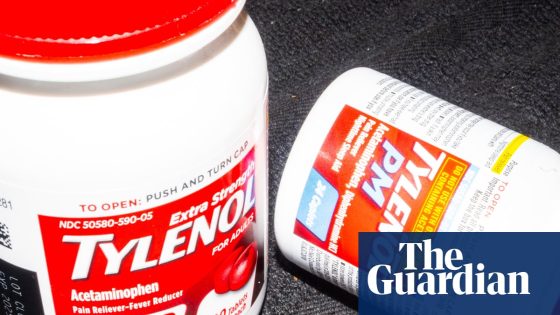On September 24, 2025, “Trump’s Tylenol announcement incurs furious backlash: ‘This is yet more utter rubbish’ | Donald Trump” was published, reporting widespread outrage over the Trump administration’s claim linking Tylenol to autism. The announcement prompted immediate criticism from medical professionals, pregnant individuals, and autism advocates.
- Public backlash against Trump’s Tylenol-autism claim
- Critics see announcement as political distraction
- Medical professionals dismiss scientific validity of claims
- Concerns over increased control over women’s health
- Neurodiversity advocates emphasize acceptance over eradication
Following the announcement, hundreds responded within hours, condemning it as disconnected from scientific facts and driven by political motives. Many viewed it as a distraction from ongoing investigations into Jeffrey Epstein. Critics also accused Trump of spreading misinformation to control public perception and undermine scientific expertise. Pregnant women expressed frustration, noting their limited options for pain relief, such as acetaminophen, which they safely used during pregnancy without autism risk. Some highlighted that the statement aligns with broader efforts to restrict reproductive rights, including redefining contraceptives as abortifacients. Several autistic individuals and relatives condemned the rhetoric, emphasizing neurodiversity and rejecting the idea of curing or eradicating autism. Experts like Dr. Paul Kiff dismissed the claim as baseless, criticizing Trump’s lack of understanding of research. Critics warned that such misinformation fosters distrust in science and echoes authoritarian tactics seen in historical regimes, aiming to manipulate public opinion and suppress dissent. The backlash underscores concerns about increased government control over women’s health and the potential normalization of harmful conspiracy theories.
- Disseminate accurate, science-based information about medication safety during pregnancy.
- Monitor and counteract misinformation campaigns linked to political agendas.
- Support advocacy for neurodiversity and educate about autism acceptance.
- Encourage policymakers to prioritize evidence-based health policies over misinformation.
The controversy highlights ongoing political efforts to control reproductive rights and influence public health narratives, raising concerns about future restrictions and the spread of misinformation in policy debates.


























